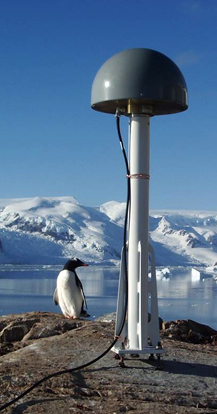This week is Fall AGU, the biggest climate-related conference around. Not everything is related to climate – there is a lot of other geophysics and astrophysics, but it is generally the place to go if you want to see and be seen (and incidentally, be crushed, be excited, be friendly and be frustrated that you can’t be in three places at once).
If you are not going, you should check out the improvements in the ‘Virtual meeting‘, which will offer live streaming of some big sessions, and for those and many additional sessions there is video-on-demand (VOD) after the fact. Many posters will also be available via ePoster. The twitter hashtag is #AGU12.
And if you are going to be there, here is a limited selection of sessions that will discuss issues that often come up here (more details in the scientific program).
Monday, Dec 03:
PP11F. The Climate of the Common Era I + II
8:00 AM – 12:30 AM; 2010 (Moscone West) (including Kevin Anchukatis, Philip Brohan, Eric, and many others).
12:30 PM – 01:30 PM: San Francisco Marriott Marquis – Salon 10 Brown Bag Lunch Workshop with Michael Gerrard on “Legal Duties to Preserve and Disclose Scientific Data and Personal Communications” (note that anyone who wants a private one-on-one session with a lawyer related to these or related issues, can email lawyer(at)climatesciencedefensefund.org to set up a meeting).
PA13B. Countering Denial and Manufactured Doubt of 21st Century Science
1:40 PM – 3:40 PM; 302 (Moscone South)
6:30 PM – 8:30PM; Open Mike Night hosted by Richard Alley. Jillian’s, 175 4th Street, Suite 1070.
Tuesday, Dec 04:
PA21B. Communication of Science Through Art: A Raison d’Etre for Interdisciplinary Collaboration
8:00 AM – 10:00 AM; 104 (Moscone South) (VOD)
GC22B. Communicating Climate Science—Seeking the Best of Old and New Paradigms
10:20 AM – 12:20 PM; 3014 (Moscone West) (including Mike, Richard Alley, Dan Kahan, Richard Somerville and Naomi Oreskes)
PA23B. PA23B. Facebook, Twitter, Blogs: Science Communication Gone Social—The Social Media 101
1:40 PM – 3:40 PM; 302 (Moscone South) (Including Mike, Michael Tobis, Peter Sinclair, and Zeke Hausfather)
Bloggers Forum: Science on the Web:
5:00 pm – 6:00 pm: 3000 (Moscone West)
Wednesday, Dec 05:
Session Title: A32D. New Atmospheric Sciences Fellows Presentations I + II
8:00 AM – 12:20PM; 3002 (Moscone West) (including Tony DelGenio, Mike, Ron Stouffer, Dave Neelin… ) (VOD)
PP31D. Continental Archives of Past Climate and Seismic Events II
8:00 AM – 10:00 AM; 2006 (Moscone West) (including Ray B. discussing this)
PP32A. Emiliani Lecture
10:20 AM – 11:20 AM; 103 (Moscone South)
“No future without a past” or “History will teach us nothing”? (Invited) Richard E. Zeebe (VOD)
12:30 PM – 1:30 PM; Brown Bag lunch with Pete Fontaine “An inside look at the Michael Mann case”. 226 (Moscone South)
GC33F. Construing Uncertainty in Climate Science
2:40 PM – 3:40 PM; 3003 (Moscone West) (including Naomi Oreskes, Gerard Roe)
GC44B. Links Between Rapid Arctic Change and Midlatitude Weather Patterns
5:00 PM – 6:00 PM; 3001 (Moscone West) (including Steve Vavrus, Judah Cohen)
Thursday, Dec 06:
GC43I. Tyndall History of Global Environmental Change Lecture:
2:40 PM – 3:40 PM; 2022-2024 (Moscone West): “Successful Predictions” (Invited), Raymond Pierrehumbert (VOD)
U44A. Dissolving Boundaries Between Scientists, Media, and the Public
4:00 PM – 6:00 PM; 102 (Moscone South) (Including Eric as speaker and panelist).
Friday, Dec 07:
C54B. The Ice Core Record of Carbon Cycle History and Processes
4:00 PM – 6:00 PM; 3007 (Moscone West)
Feel free to advertise other sessions/talks that might be of interest in the comments. Hopefully we’ll get some reports of interesting sessions to share with you (and if anyone wants to send us anything, we’ll post it up that evening).
